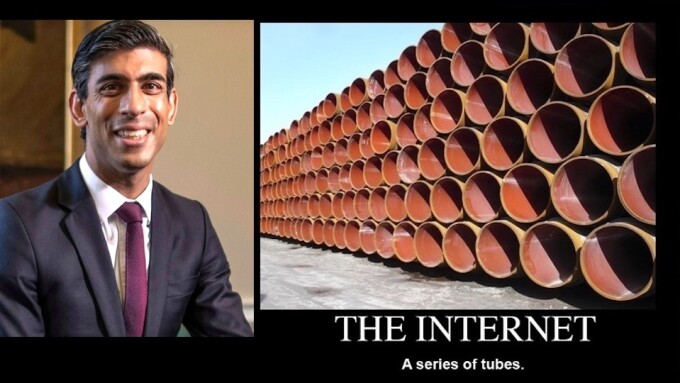LONDON — The Tory government led by Rishi Sunak has reintroduced the Online Safety Bill, which has now been amended to remove some of the language that would have forced platforms to censor content the government termed “legal but harmful.”
As The Guardian’s Alex Hern pointed out today, this version of the controversial bill — which has been criticized even by ardent, veteran members of the ruling Conservative Party — is yet another compromise, presented by the “fourth prime minister and seventh secretary of state since it was first proposed as an online harms white paper under Theresa May.”
In fact, the Online Safety Bill has been stuck in conceptual chaos since its very beginnings, with various unclear goals such as “protecting children,” “outlawing hate speech,” “cleaning up the internet” and other fuzzy notions popularized through various media panics concerning online content.
The bill reintroduced today was originally drafted in May 2021, but was repeatedly delayed awaiting modifications prompted by the serious concerns of free speech advocates, lobbyists for platforms, and politicians across the spectrum.
“While the latest raft of amendments will see more harmful content criminalized, the government has u-turned on the ‘legal but harmful’ aspect of the bill,” explained the New Statesman’s Sarah Dawood. “This would have put a duty on Big Tech companies to stop the proliferation of dangerous content that is not illegal, such as misogyny, some online bullying and content promoting eating disorders.”
The “legal but harmful” formulation — essentially a vague carve-out of free speech — originates in a rhyming expression taught in U.S. law schools: “lawful but awful,” an imprecise, catchall label that encompasses threats and violence but also most visual expressions of sexuality, including all pornography.
'Legal but Harmful' Out, 'Downblousing' In
The most significant change in the version of the bill introduced today, the New Statesman explained, is “the removal of ‘legal but harmful’ content from the bill. Previously, social media giants would have been forced to take down content deemed to be harmful as specified by the government. Instead, users will now be able to filter out harmful content they do not want to see themselves, while Big Tech will be required to enforce their own terms and conditions, which could prohibit content that falls outside of criminality if they wish.”
Culture Secretary Michelle Donelan — a Tory politician who had previously strongly defended the censorship provisions of earlier versions of the bill — “defended the change to Sky News, saying that the original provision could have impacted free speech by creating a ‘quasi-legal category between illegal and legal,’ instigating different rules around online and offline expression.”
Other changes to the bill promoted today by its Tory sponsors are the explicit criminalization of “deepfake” pornography, “upskirting” and “downblousing,” defined by the New Statesman as “when photos or videos are secretly taken down someone’s shirt.”
“Alongside this, stronger regulation will also be enforced around sharing any intimate images without consent,” the paper added. “It will also be illegal to share content encouraging self-harm. This brings it in line with sharing content that encourages suicide, which is already illegal.”
Justice Secretary Dominic Raab commented, “We must do more to protect women and girls from people who take or manipulate intimate photos in order to hound or humiliate them. Our changes will give police and prosecutors the powers they need to bring these cowards to justice and safeguard women and girls from such vile abuse.”
The ‘Children’s Code’
As XBIZ reported, one of the main engines behind the bill has been the U.K.’s “Children’s Code,” a set of regulatory standards devised by a British aristocrat with California and Hollywood ties, the Baroness Beeban Kidron.
Kidron is a 62-year-old former photographer, film producer and director, philanthropist and self-appointed “advocate for children's rights in the digital world.” She has founded and chairs charities the 5Rights Foundation and Into Film. In 2012, Queen Elizabeth made Kidron a Baroness and she was introduced in the House of Lords. She was appointed on the recommendation of the House of Lords Appointments Commission and is an unelected “life peer,” legislating in the U.K. as a member of the House of Lords Democracy and Digital Technologies Committee.
Kidron spoke at length to The Guardian in 2021 about what she sees as her crusade for “children’s rights” online. The Guardian reported that Kidron took up the cause while working on a documentary titled ‘InRealLife’ and spending “‘hundreds of hours in the bedrooms of children’ to discover how the internet affects young lives. What she saw disturbed her.”
“I did what they were doing — gaming, falling in love, watching pornography, going to meet-ups, making music — you name it, it happened,” Kidron told The Guardian.
Main Image: U.K. Prime Minister Rishi Sunak (Conservative, Richmond)






